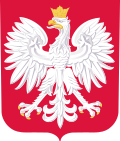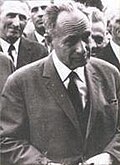| |||||||||||||||||||||||||||||
All 460 seats in the Sejm | |||||||||||||||||||||||||||||
|---|---|---|---|---|---|---|---|---|---|---|---|---|---|---|---|---|---|---|---|---|---|---|---|---|---|---|---|---|---|
| |||||||||||||||||||||||||||||
 |
|---|
Parliamentary elections were held in Poland on 1 June 1969. [1] The results, like with the other elections in communist Poland, were controlled by the communist government. The results of the 1969 election were identical to the 1965 elections and were repeated in 1972.



